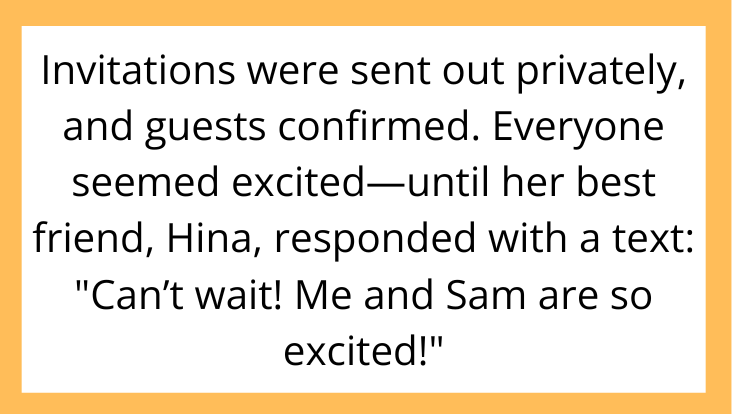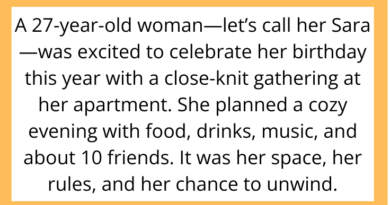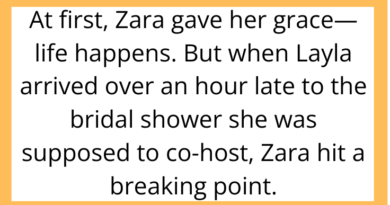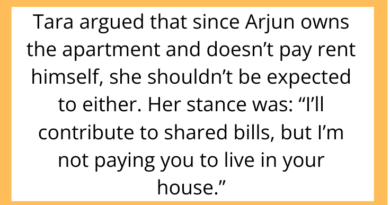AITAH for Telling My Best Friend She Can’t Bring Her Boyfriend to My Birthday Party?
Birthdays are supposed to be joyful and full of people you care about—but what happens when someone brings a plus-one you didn’t invite, and it shifts the entire vibe? In today’s AITAH-inspired story, one woman draws a firm line when her best friend assumes her new boyfriend is automatically included in the guest list.
Let’s break down the drama, explore the perspectives, and ask: Is she the villain for wanting to keep her celebration exactly as she planned?
The Setup: A Carefully Curated Guest List

This scenario was shared by a 26-year-old woman—let’s call her Zara—who was planning her birthday dinner with close friends. She decided to keep it small: just 12 people she was deeply connected with, at her favorite restaurant with a fixed menu, limited seating, and a cozy ambiance.
Invitations were sent out privately, and guests confirmed. Everyone seemed excited—until her best friend, Hina, responded with a text:
“Can’t wait! Me and Sam are so excited!”
Zara was confused. She hadn’t invited Sam—Hina’s boyfriend of three months.
The Response: “Sorry, But He’s Not Invited”

Zara messaged Hina privately to clarify. She explained that the dinner was small, and only close friends were invited. It wasn’t personal, but Sam wasn’t part of the group, and she didn’t feel comfortable extending the invite to someone she didn’t know well.
Hina didn’t take it well.
She accused Zara of being disrespectful, controlling, and “not supportive” of her relationship. According to Hina, if Sam wasn’t welcome, then neither was she.
Zara, taken aback, stood firm. She told Hina she’d love to celebrate with her another time, but the dinner was set.
The next day, the group chat lit up. Hina had clearly shared her version of events, and a few mutual friends began sending Zara subtle messages asking if there was “room for one more.” Zara felt ganged up on, alienated, and suddenly unsure.
She turned to the r/AITAH community and asked: Am I the villain for not inviting my best friend’s boyfriend to my birthday party?
The Case for Zara: Boundaries Aren’t Betrayal

Zara had clear reasons:
-
It was a small dinner, not a big bash.
-
The space and budget were limited.
-
She didn’t feel close to Sam and wasn’t ready to include him in such an intimate setting.
In essence, she wanted her party to feel personal—not like a networking event with strangers.
Plus, Zara didn’t say Hina couldn’t bring him to any celebration—just not this one. She even offered to meet up with them another time.
Many Reddit users agreed. Top comments said things like:
“Your birthday, your guest list.”
“Just because someone is in a relationship doesn’t mean their partner has to be included in every social event.”
“Hina sounds like the one crossing boundaries.”
The Case for Hina: Loyalty Runs Deep
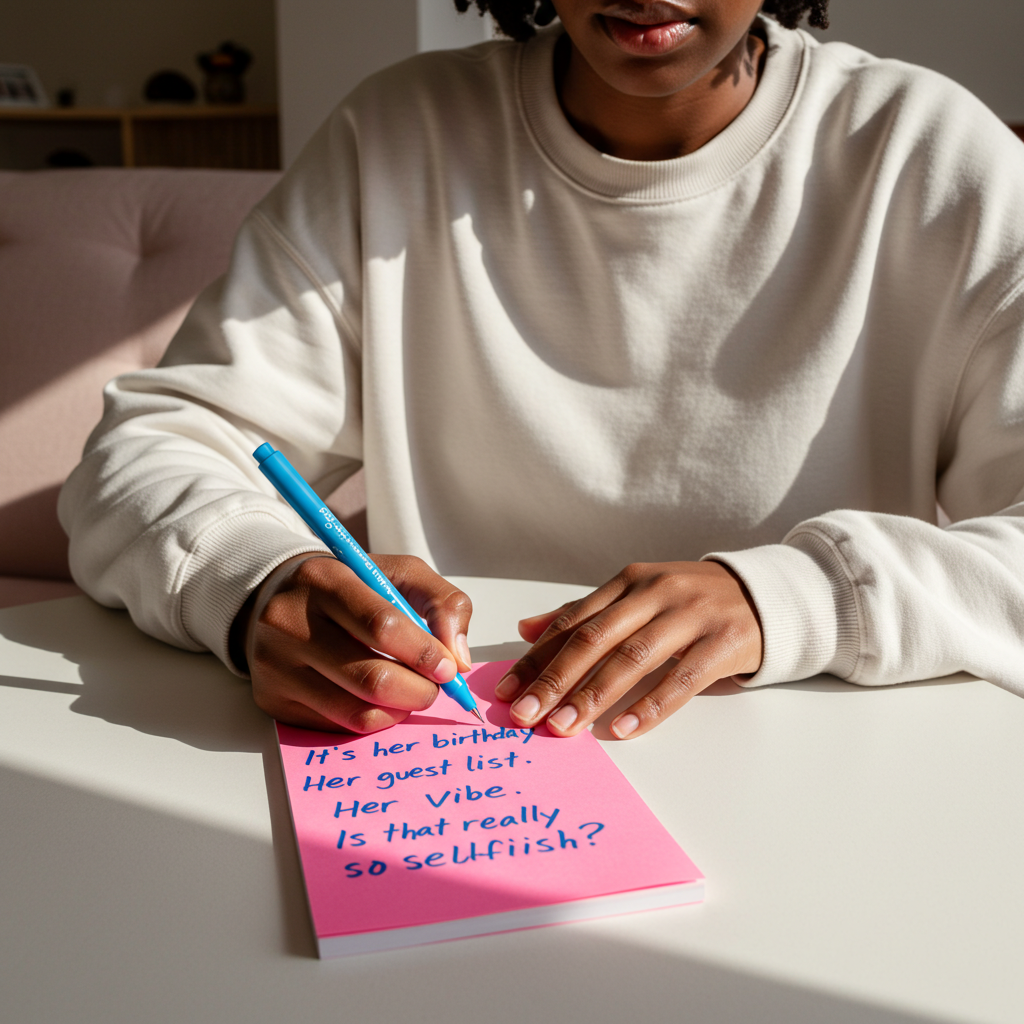
From Hina’s perspective, Zara’s decision felt exclusionary. She may have believed that being best friends meant her boyfriend was automatically part of the inner circle.
Hina might’ve also seen Zara’s refusal as a judgment—like Sam wasn’t “good enough” or that their relationship wasn’t serious.
In relationships—especially new ones—validation from friends can feel crucial. Being excluded from a close friend’s event can feel like rejection, even if it’s not meant that way.
The Deeper Issue: Expectations in Adult Friendships
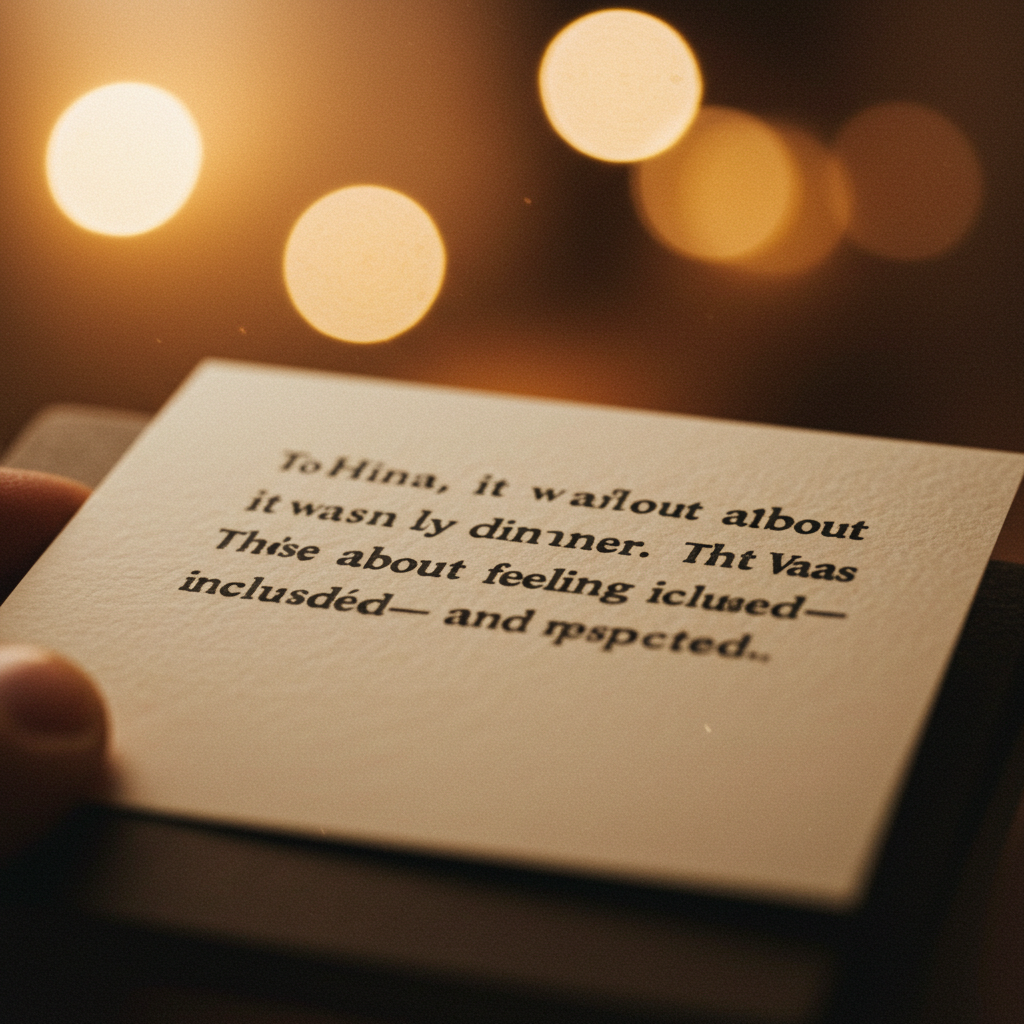
This story highlights a growing tension in adult friendships:
-
Do all partners get automatic plus-ones?
-
What if the event is personal, intimate, or limited in size?
-
Is it selfish to make your event about you, or does being a good friend mean always making space for your friend’s partner?
Different people have different boundaries—and assumptions often cause more conflict than the actual decisions themselves.
What Could They Have Done Differently?

For Zara:
-
She could’ve explained her decision sooner and more gently.
-
Offering to celebrate with Hina and Sam another time was thoughtful, but maybe a personal call instead of a text would’ve helped avoid tension.
-
Communicating expectations clearly helps prevent misunderstandings.
For Hina:
-
Assuming a plus-one was allowed without asking created unnecessary tension.
-
Making it an all-or-nothing ultimatum (“if he’s not invited, I’m not coming”) put Zara in a difficult position.
-
Respecting someone’s boundary—even if you don’t agree—is part of friendship.
Reddit’s Verdict: Not the Villain
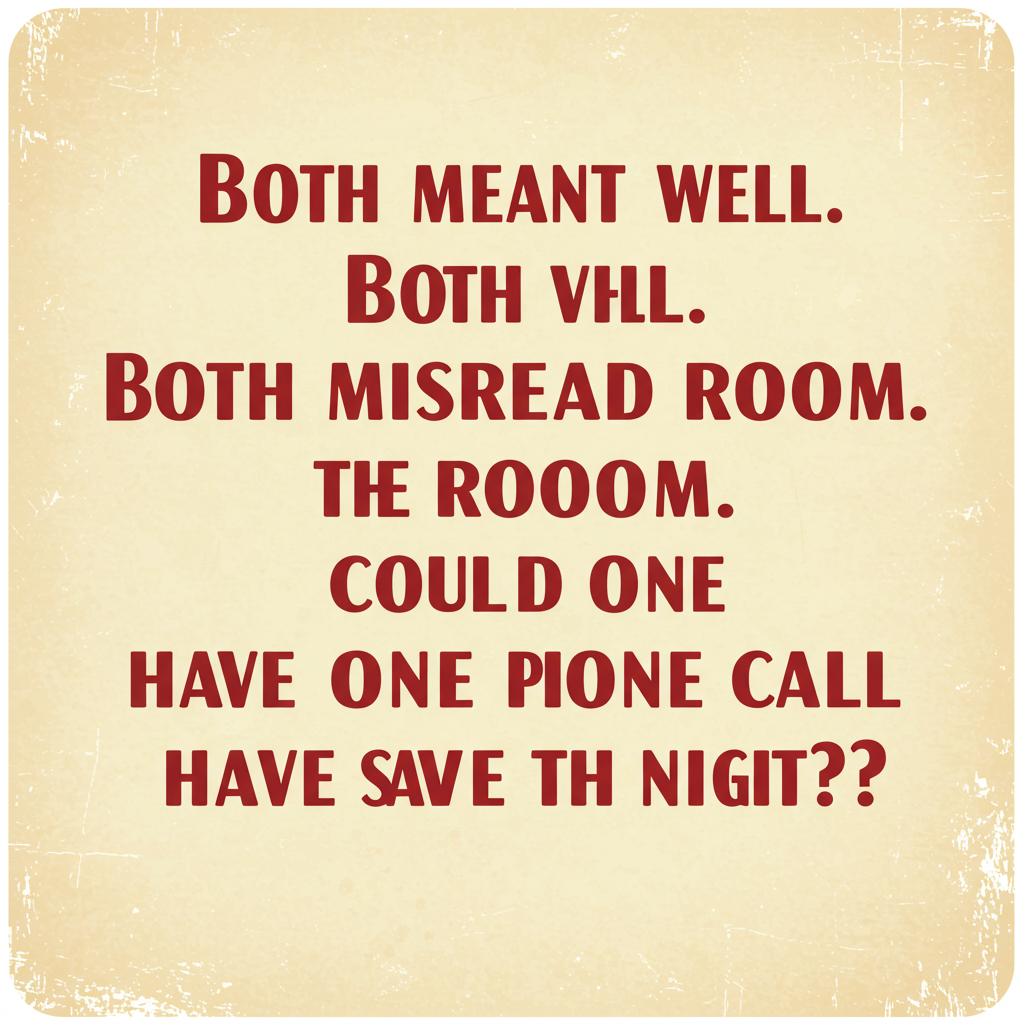
The majority sided with Zara. The consensus was that while Hina had a right to feel disappointed, Zara wasn’t wrong for creating the kind of environment she wanted for her own celebration.
“Wanting to feel comfortable on your birthday isn’t a crime,” one user wrote. “Hina is making it about her, when it should be about you.”
Takeaway: Friendships Need Clarity, Not Assumptions

At the heart of this AITAH story is a lesson in communication. Zara’s mistake wasn’t the boundary—it was assuming everyone would understand it without being told. Hina’s mistake wasn’t wanting her partner there—it was expecting it as a given.
Relationships and friendships evolve. What matters most is how we navigate those changes with empathy, honesty, and respect.
